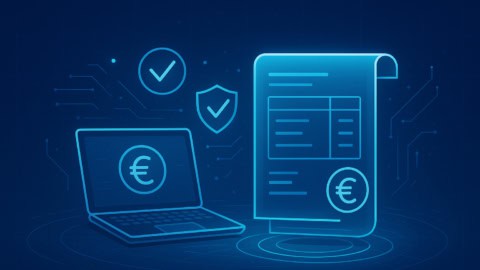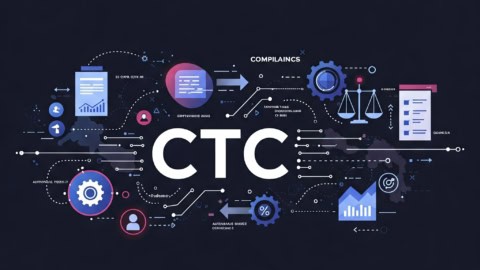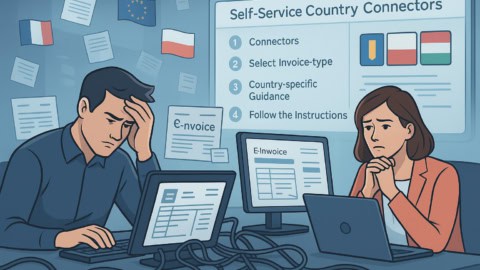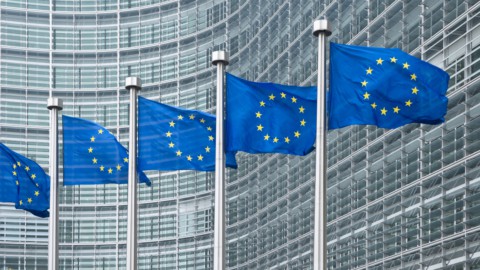On March 2, 2023 Belgium’s Finance minister revealed plans for the first stage of a proposed tax reform in the country. In addition to measures such as incentivising green investments and increasing the security tax rate, the proposal also indicates that Belgium will be implementing B2B e-invoicing and e-reporting via a phased approach in the next few years.
Overview of upcoming e-invoicing changes
In order to combat VAT fraud, the Belgian government will phase out invoicing via unstructured formats such as paper or PDF. Between 2024 and 2028 it will become mandatory for all Belgian businesses to send and/or receive e-invoices for B2B transactions.
In accordance with the 2014 EU directive (2014/55/EU) on electronic invoicing in public procurement, a definition for structured e-invoices will be introduced. The proposed system will likely make use of Peppol.
Overview of upcoming e-reporting changes
Although information regarding proposed e-reporting regulations in Belgium is limited, it is expected to align with the EU’s ViDA proposals. As a result, it is predicted that…
- The new mandate will supplant the existing Annual Sales Listing (ASL) for Belgian VAT-registered businesses (which requires Belgian businesses to submit data concerning domestic sales in the past year).
- Belgian businesses will have to submit invoice data to authorities swifty following each transaction (possibly within 24 hours of the invoice being issued).
- Businesses will have to report both sales and purchases to authorities.
- Even businesses that are not affected by new e-invoicing regulations may be affected by the new e-reporting obligations.
Belgium e-invoicing – planned timeline
- 1 January 2024: Most VAT-registered Belgian businesses required to be able to receive e-invoices.
- 1 July 2024: Large VAT-registered Belgian businesses required to send e-invoices.
- 1 January 2025: Medium-sized VAT-registered Belgian businesses required to be able to send e-invoices.
- 1 July 2025: Small VAT-registered Belgian businesses required to send e-invoices. This will not include those businesses that have opted for a different VAT scheme.
- 1 January 2026: E-reporting now mandatory for all VAT-registered Belgian businesses except those that have opted for a different VAT scheme.
- 1 January 2028: Belgian businesses not affected by previous regulations now required to send/receive e-invoices and conduct e-reporting.
How to prepare for the changes
Assess current capabilities
Before implementing any process/system change it’s crucial to first conduct a thorough assessment of internal resources. Questions to ask include…
- How experienced are internal teams at handling mapping and routing?
- Does your current solution depend on a few individuals?
- How many invoices are you sending/receiving per month on average?
- Is your current solution capable of adapting to meet the proposed Belgian e-invoicing and e-reporting regulations without major changes?
Think long-term
It’s important to remember that e-invoicing requirements are only likely to become more complicated over time as your business grows and more e-invoicing regulations are introduced. As a result, choosing an e-invoicing solution that offers flexibility is extremely important – particularly for those businesses without significant in-house e-invoicing expertise.
Give yourself time to evaluate your options
Unfortunately, many businesses leave it until the last minute to implement a new e-invoicing solution. As a result, they have little time to evaluate different options and risk choosing a system that doesn’t align with their needs.
While updating B2B messaging processes may seem like a hassle in the short term, as explored in our stat-filled infographic, implementing an efficient e-invoicing solution can bring many advantages. With this in mind, it is useful to approach implementation projects as an opportunity rather than a necessary evil.
Make sure you don’t miss any developments
With so many countries updating e-invoicing and e-reporting regulations, staying on top of e-invoicing updates can be tricky. Thankfully, ecosio’s e-invoicing newsletter makes keeping track of relevant developments easy.
Sign up today and make sure you don’t miss any important news regarding e-invoicing in Belgium (or anywhere else)!














